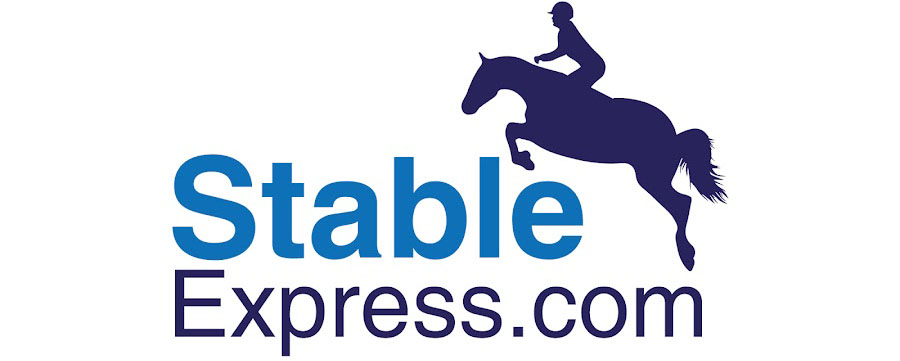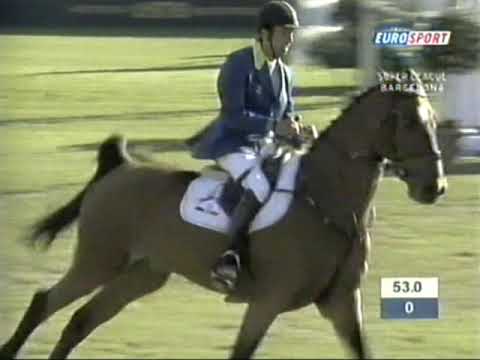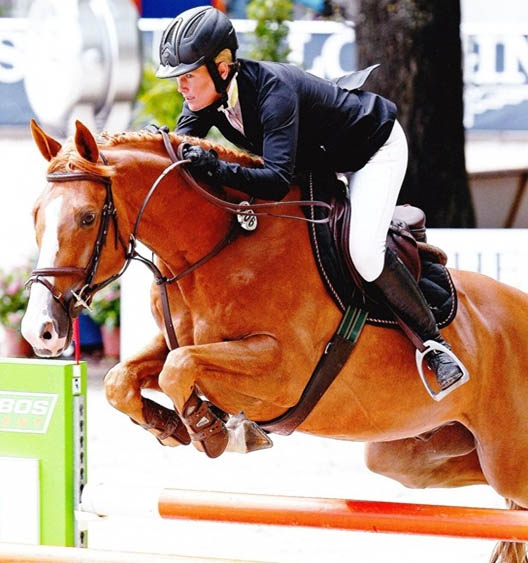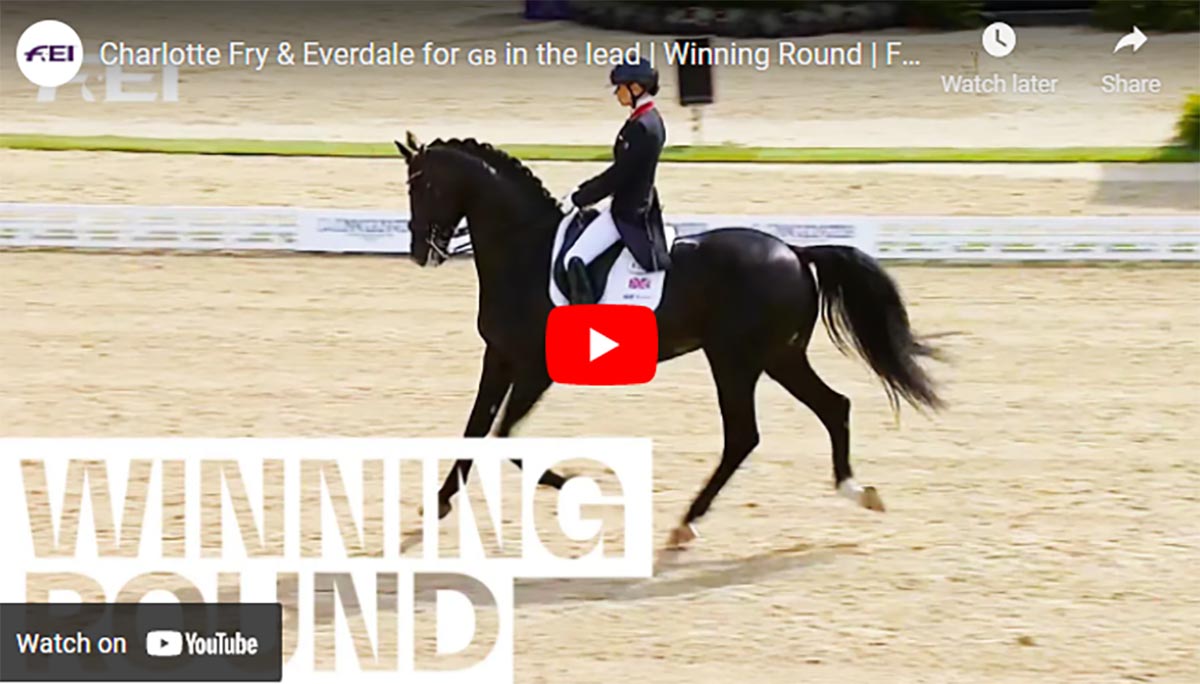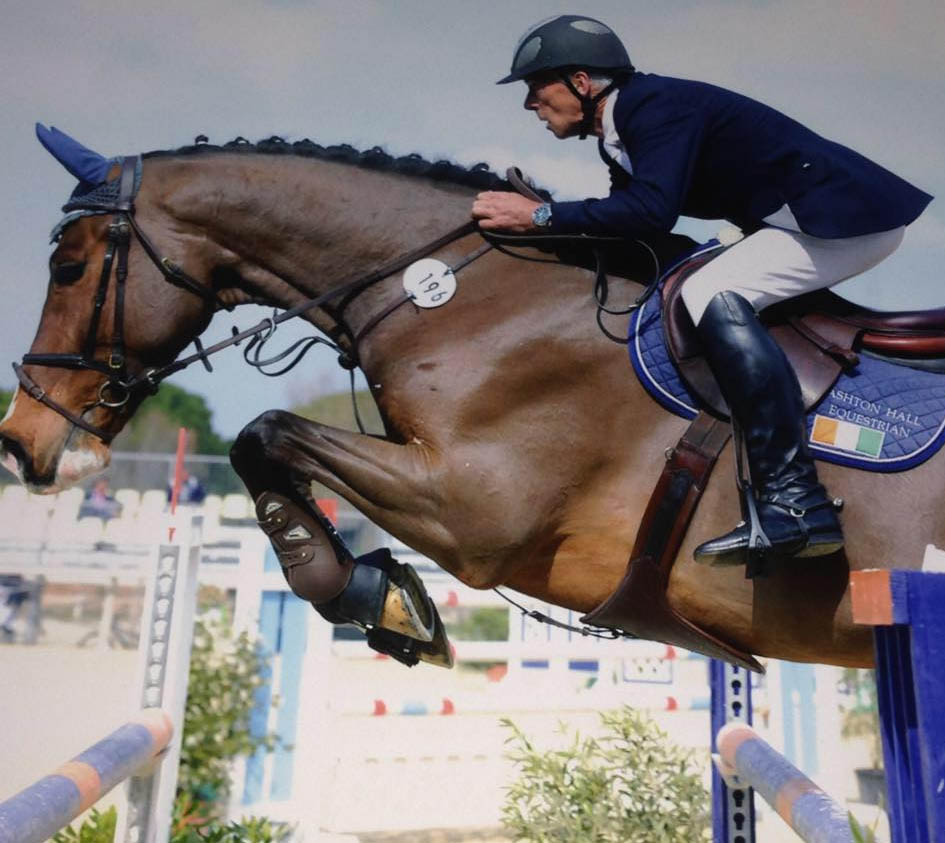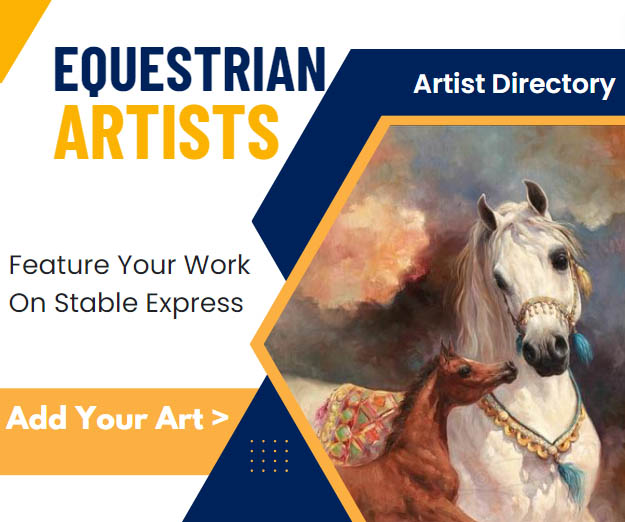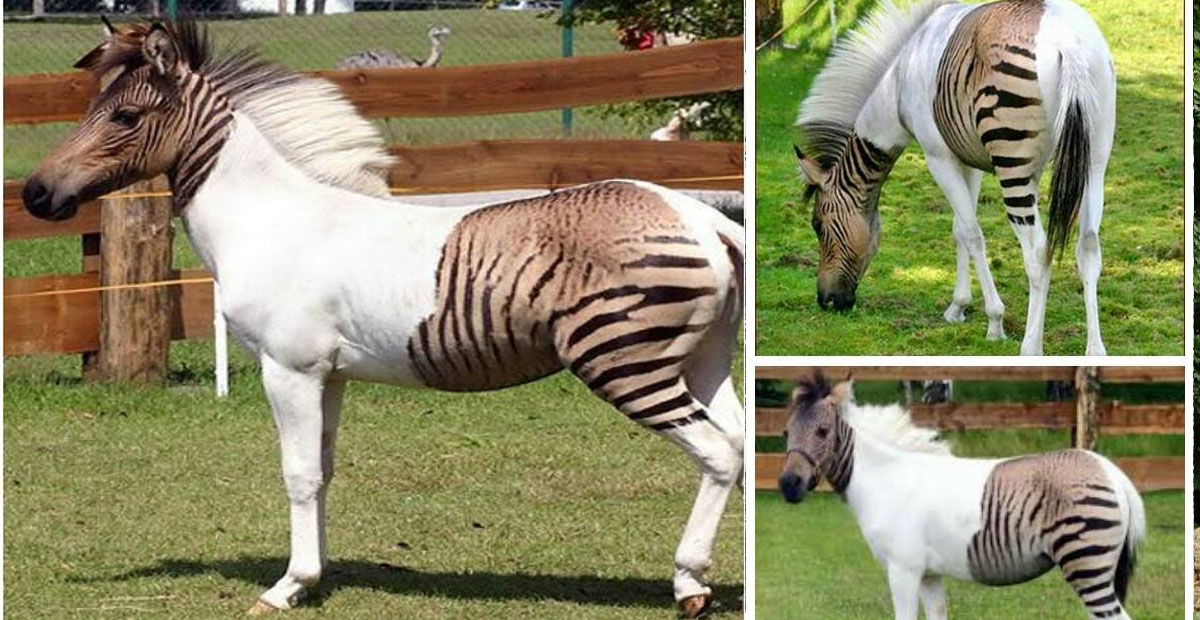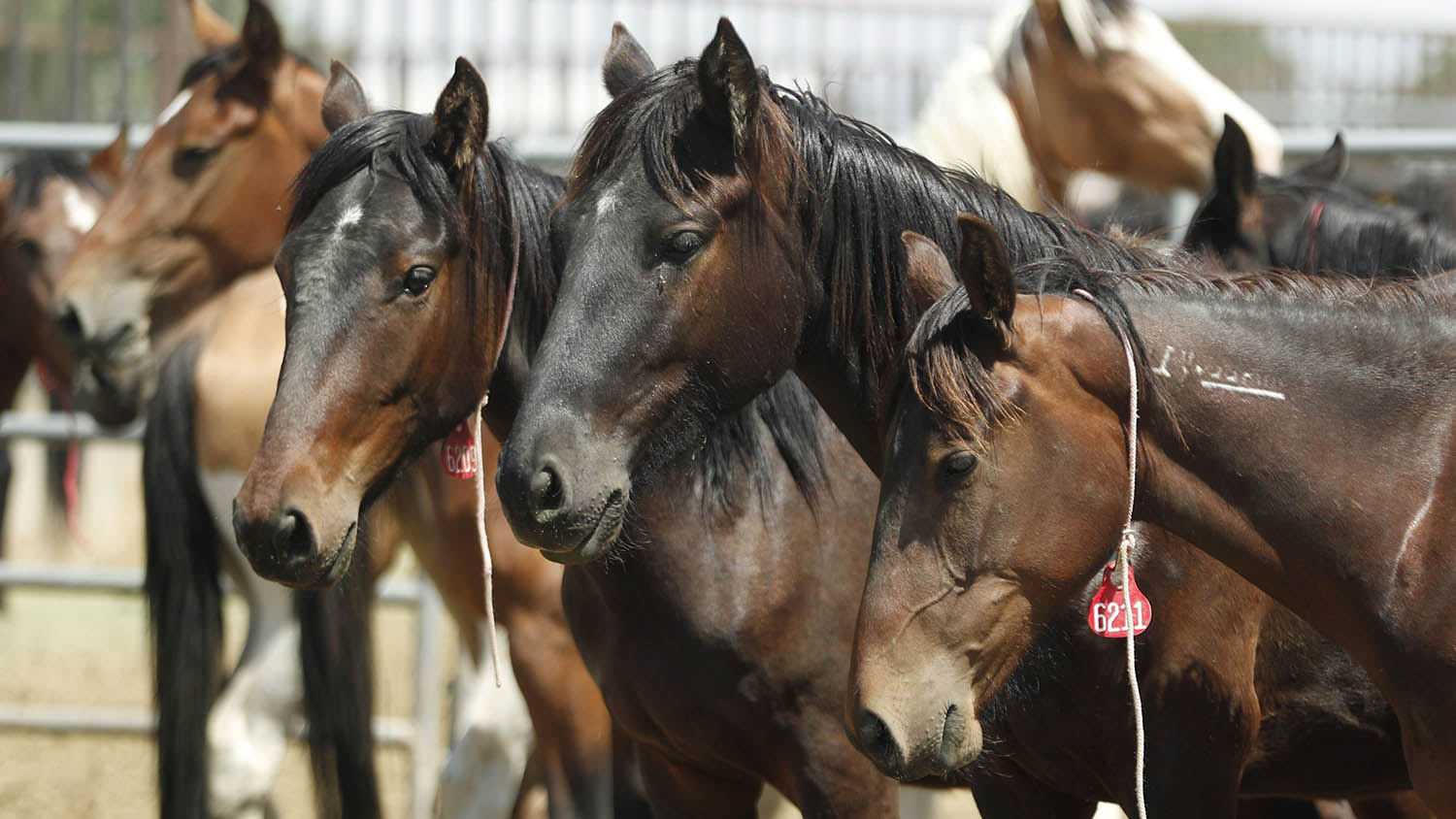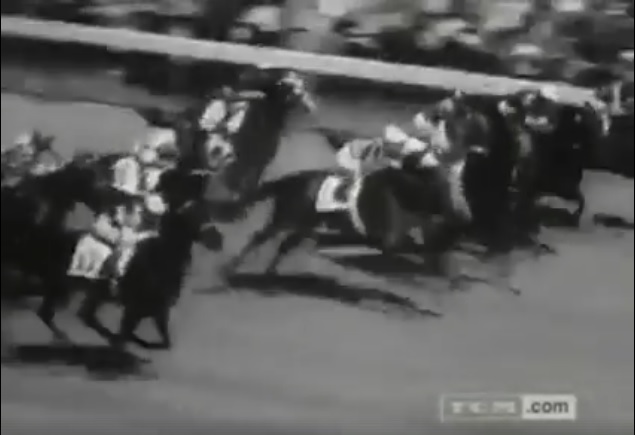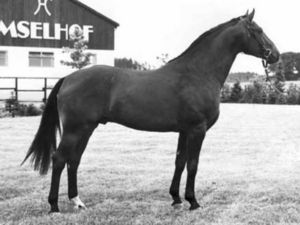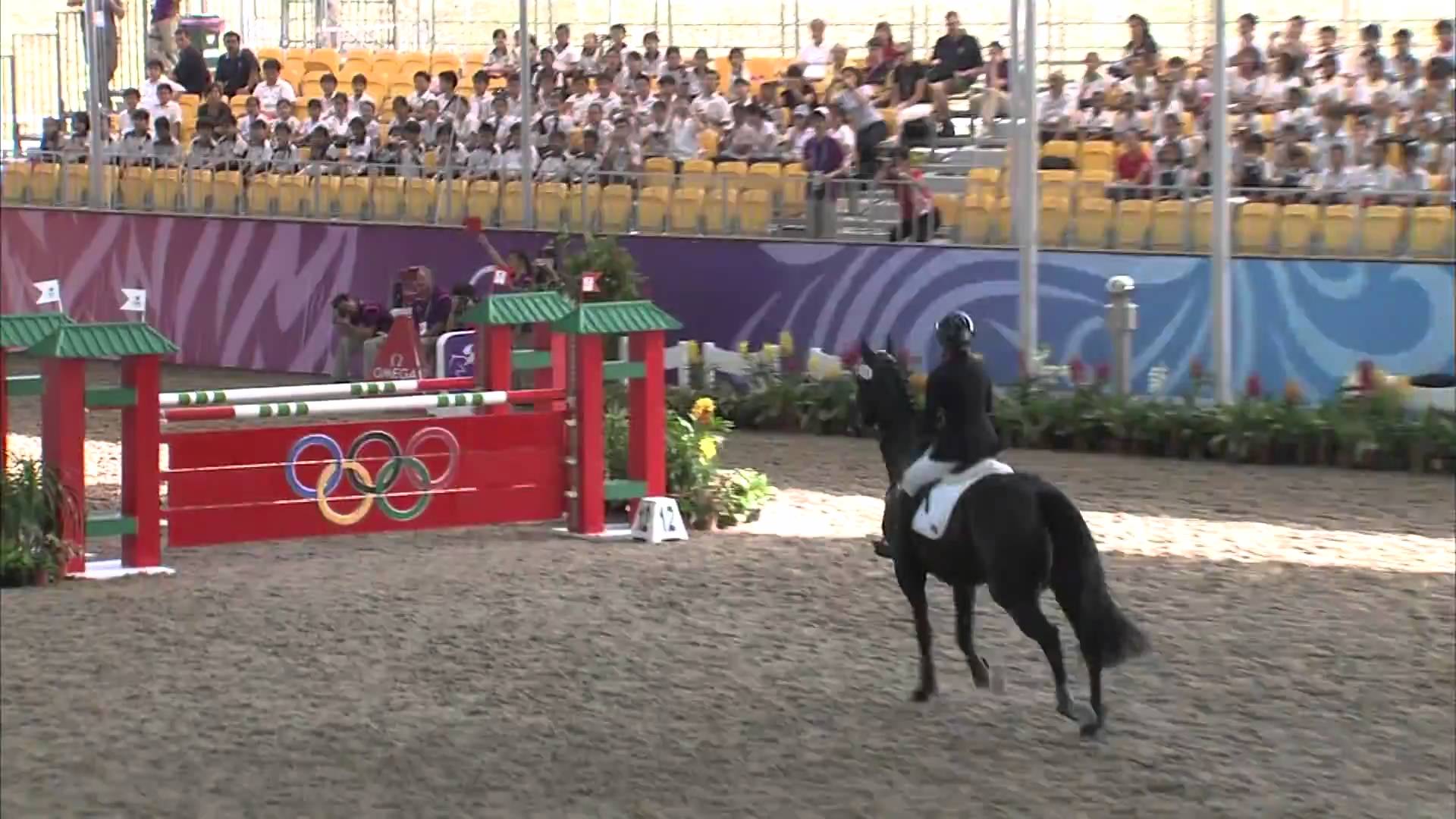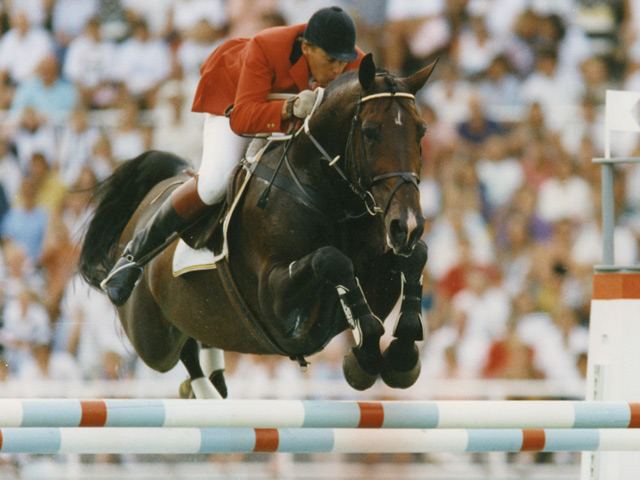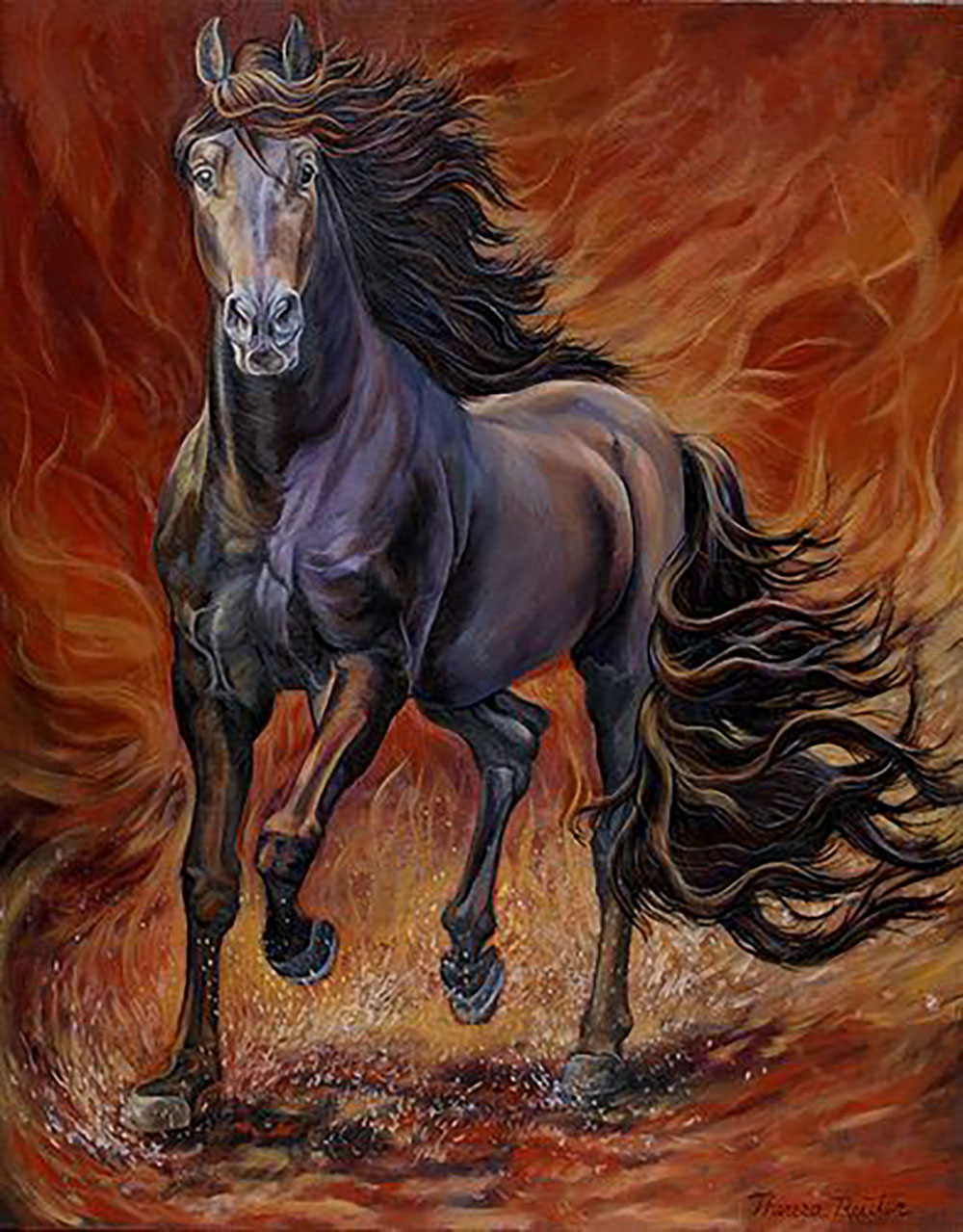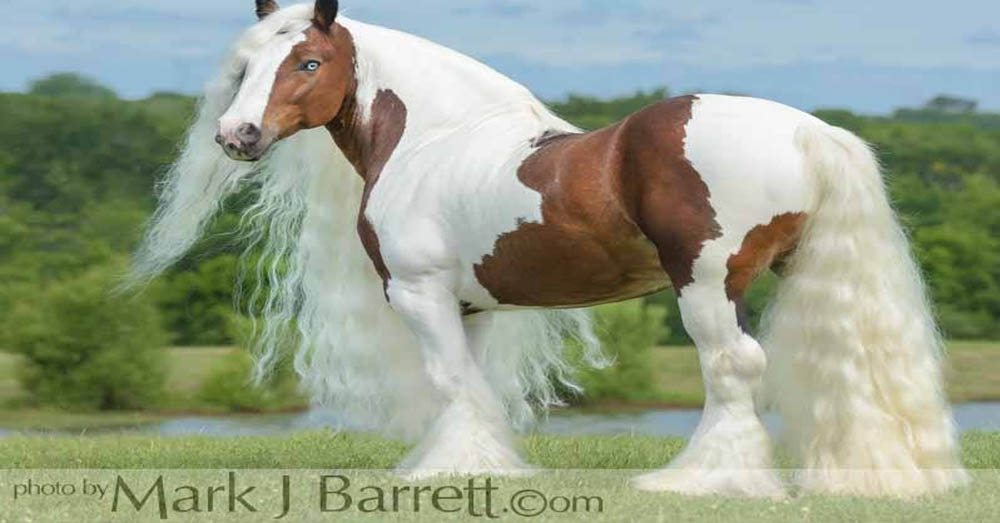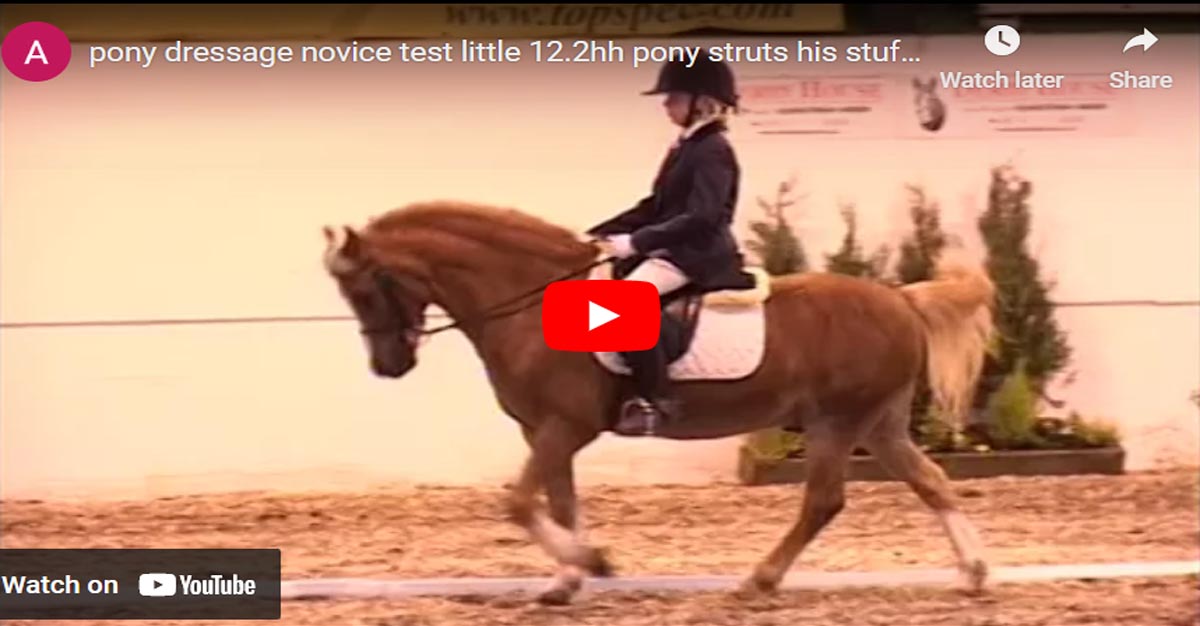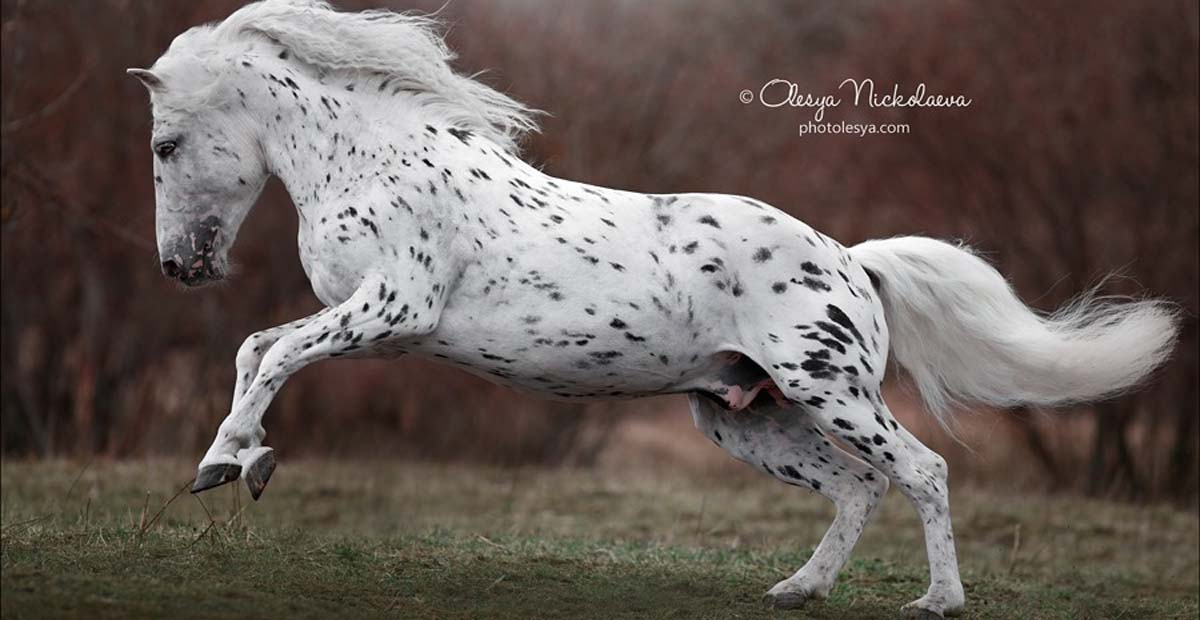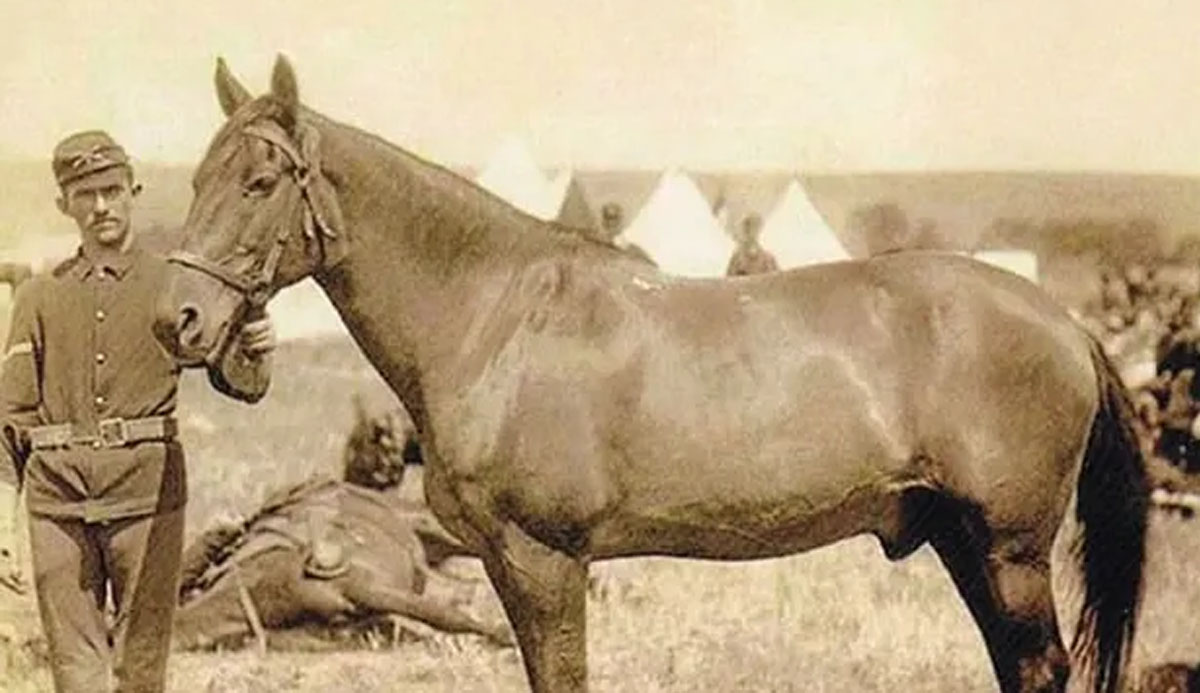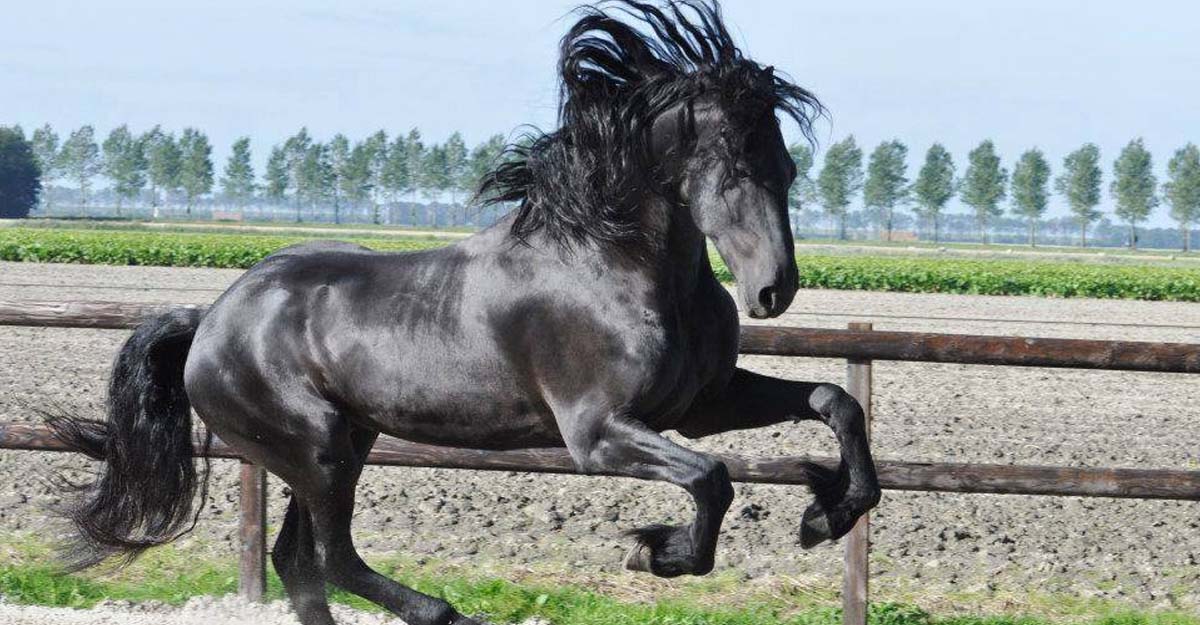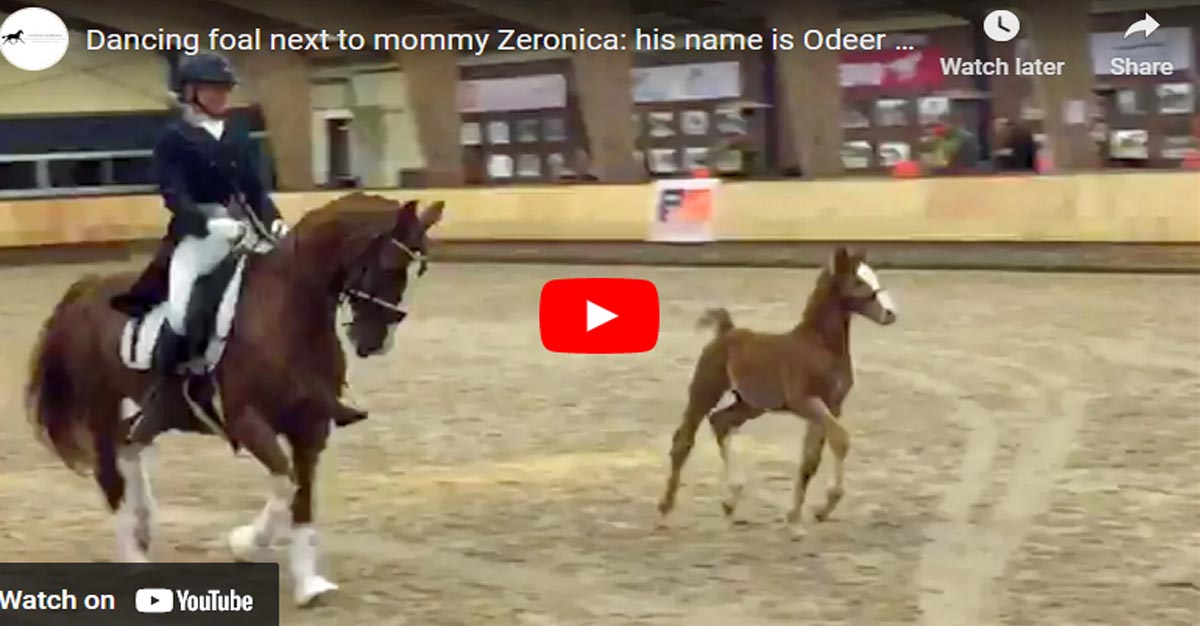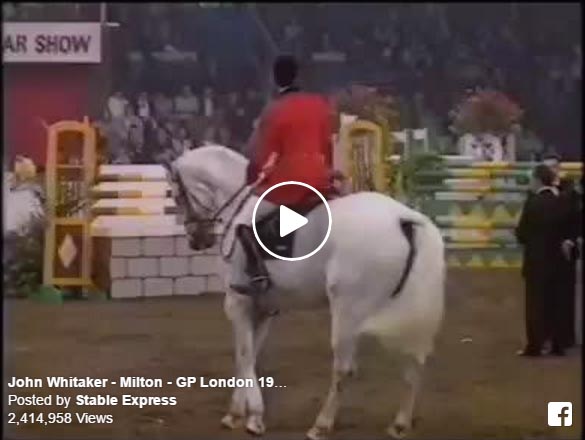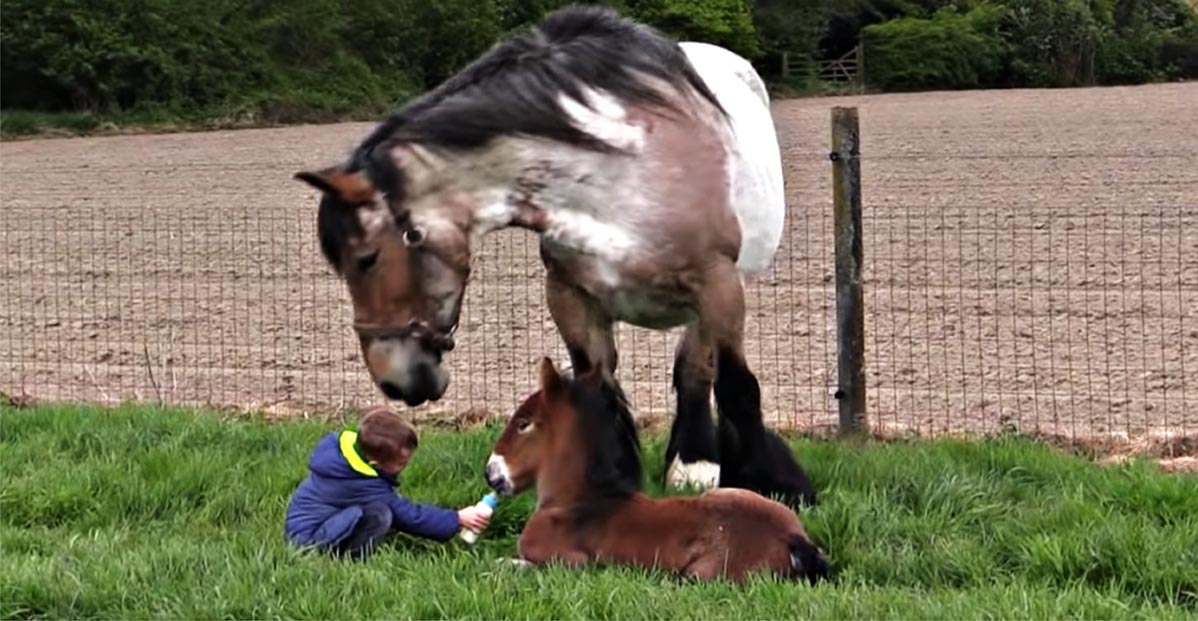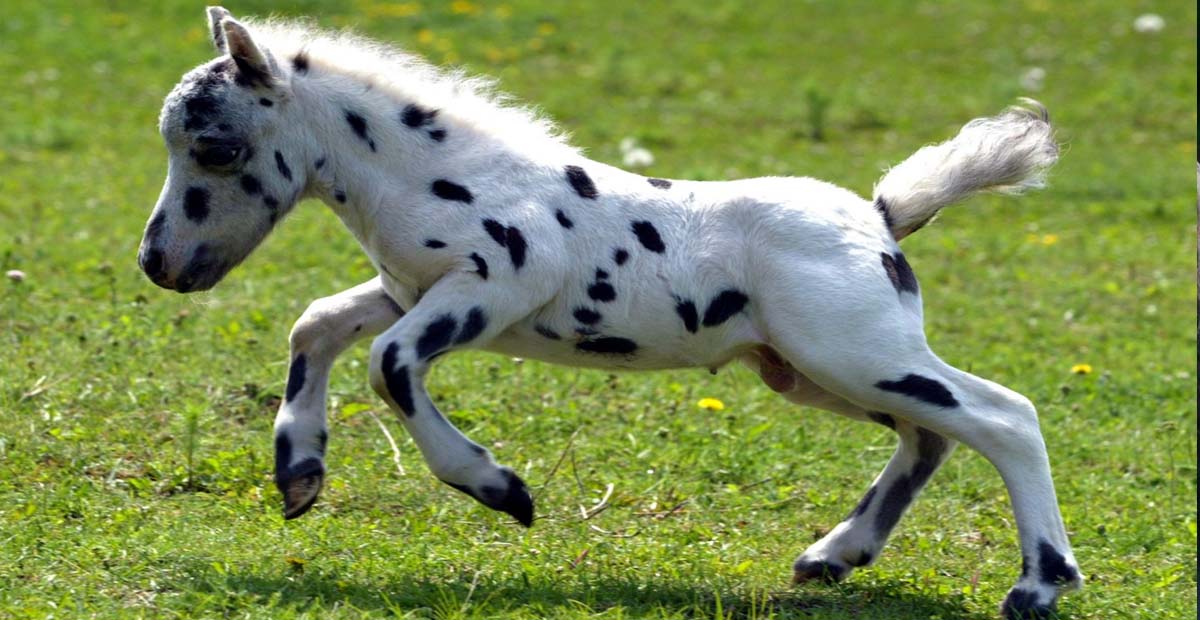Care of Older Horses
Thanks largely to progress in veterinary medicine and a better understanding of nutrition, horses can remain healthy and sound well into their late teens and early twenties. A twelve-year-old horse is still in his prime. It is not uncommon today for horses to live to be thirty or older. The last few years have seen several jumpers still competing in Grand Prix competitions at seventeen and eighteen years old. However, like an older person, an elderly horse does need some extra care to remain healthy. It is the ownerís responsibility to see that his animals receive the necessary food, water, shelter and care to keep them in good shape no matter what their age. When a horseís failing health prevents him from living without undue suffering, it is the ownerís sad responsibility to have the animal euthanized.
How is looking after an old horse different from caring for other horses?
As a horse ages, his bodily functions become less efficient. His teeth may deteriorate to the point where he canít graze properly or chew his hay. He may be arthritic. With less fat cover, he has more trouble keeping himself warm. Such things as good shelter, routine worming and regular dental care, which were important when the horse was in his prime, now become vital.
What kind of shelter does my horse need?
Remember that your horse is now a senior citizen. He needs protection from wind and wet. A dry, three sided shelter bedded with straw is a good choice. Some old horses might need to be brought into a barn when the weather is bad.
What do you mean by "routine dental care"?
The way a horse chews his food wears the teeth unevenly. Most horses need their teeth floated by a veterinarian once a year to file off the sharp points that form on the molars. If the teeth arenít floated regularly, the inside of the mouth can become cut and sore, making eating difficult.
The teeth of some old horses can become so worn down that they canít bite off grass or chew properly. Lost or broken teeth can also cause problems for an old horse.
What should I feed my old horse?
Pasture
The most natural food for a horse is good quality pasture. Most mature pleasure horses doing light work will do well on pasture alone if they have sufficient grazing. However, the teeth of older horses often prevent them from grazing effectively. If a horse canít keep weight on when out on pasture, he will need supplemental feed.
Hay
Hay is the basic food of domestic horses. Because an old horseís digestive system might not work as efficiently as it used to, good quality hay is a must. Inspect hay carefully before buying it. Have the seller open a bale for you. Bales should be green and dust and mold free. Feeding moldy hay can cause colic and dusty hay can cause respiratory problems. (To avoid dust, itís a good idea to pull the flakes apart and shake them out well before feeding. As a precaution, you can also soak hay before feeding. Do not feed moldy hay.)
Three common types of hay available in Alberta are grass hay, alfalfa hay and grass/alfalfa mix. Alfalfa has a higher protein content. Many horse people consider a grass/alfalfa mix the best for horses.
Alfalfa is also available in cubes and pellets. However, horses need chew time to be content, so except for veterinary reasons, most people feed some hay. For an old horse who doesnít have good enough teeth to chew hay properly, pellets softened in water are a good alternative.
Do not feed your horse grass clippings as they can cause founder.
Concentrates
Hay alone cannot provide enough nutrition for hard- working horses, pregnant and nursing mares, or growing youngsters. Many old horses also need concentrates to supplement their hay.
Concentrates include grains (whole, rolled or cracked), sweet feed (grain mixed with molasses), and manufactured feeds (pellets, cubes, or extruded). You can buy bags of feed specially formulated for every stage of a horseís life from creep feed for foals to feed for senior equines. Often, an old horse will do better on complete feed pellets than on hay and grain.
Does my horse need anything else?
Water
Fresh water is a vital part of your horseís diet. Horses drink from 5 to 10 gallons a day.
Clean water should be available at all times except when the horse is very hot from work. While horses can survive on snow in the winter, it is far from ideal. The horseís body has to melt a lot of snow to get enough water, thus wasting body heat. An old horse, whose body is not as efficient as it used to be, cannot afford to waste the energy. A horse not getting enough water is more liable to impaction colic. An inexpensive stock tank heater can keep the water trough ice-free.
Salt and Minerals
A mineralized salt block should be available free-choice. You can also buy a variety of other vitamin, mineral and herbal supplements. Consult your veterinarian.
How much food does my horse need?
As a general rule, a horse needs 2 to 2Ĺ pounds of feed for every 100 pounds of body weight. (You can buy a weight tape to measure how much your horse weighs.) For example, an average 1000 lb horse would need 20 to 25 pounds of feed a day. Most of that should be hay unless your old horse is eating complete feed pellets instead.
The amount of food a horse needs will depend on such things as size, breed, age, and activity. In cold weather, a horse living outside needs more food just to keep warm.
Common sense and ongoing awareness of your horse`s health and body condition should let you know if you need to make changes. In winter, donít just rely on looking ó feel under that winter coat. An older horse can lose condition quickly. If you are unsure about how much to feed your horse, ask your veterinarian for advice.
How often should I feed my horse?
The basic rule for feeding horses is to feed little and often. The more meals you can split the dayís feed into, the better for the horse. Keep to a regular schedule. For practical reasons, most people feed two or three times a day.
Is there anything I should know about feeding several horses?
If you are feeding more than one horse, make sure each horse gets enough food. Horses have a strong social order and the top horses will take more than their share. To give your old horse a chance, spread the hay out with one more pile than the number of horses. If you canít physically separate horses to feed the grain ration, use separate feed bins spaced wide apart.
Is there a way I can tell if my horse is the proper weight?
A system called "body condition scoring" has been developed to determine just how fat or thin an animal is.
To a large extent it is based on common sense, looking at the amount of flesh on the ribs, on the base of the tail, between the hips and on the bony prominences. These are the bones that stick out from the spine behind the rib cage.
In a horse carrying ideal weight, the ribs have a slight fat covering but you can feel them. The base of the tail has a smooth shape with slight fat covering. The neck is firm but, except for stallions, has no crest.

How is looking after an old horse different from caring for other horses?
As a horse ages, his bodily functions become less efficient. His teeth may deteriorate to the point where he canít graze properly or chew his hay. He may be arthritic. With less fat cover, he has more trouble keeping himself warm. Such things as good shelter, routine worming and regular dental care, which were important when the horse was in his prime, now become vital.
What kind of shelter does my horse need?
Remember that your horse is now a senior citizen. He needs protection from wind and wet. A dry, three sided shelter bedded with straw is a good choice. Some old horses might need to be brought into a barn when the weather is bad.
What do you mean by "routine dental care"?
The way a horse chews his food wears the teeth unevenly. Most horses need their teeth floated by a veterinarian once a year to file off the sharp points that form on the molars. If the teeth arenít floated regularly, the inside of the mouth can become cut and sore, making eating difficult.
The teeth of some old horses can become so worn down that they canít bite off grass or chew properly. Lost or broken teeth can also cause problems for an old horse.
What should I feed my old horse?
Pasture
The most natural food for a horse is good quality pasture. Most mature pleasure horses doing light work will do well on pasture alone if they have sufficient grazing. However, the teeth of older horses often prevent them from grazing effectively. If a horse canít keep weight on when out on pasture, he will need supplemental feed.
Hay
Hay is the basic food of domestic horses. Because an old horseís digestive system might not work as efficiently as it used to, good quality hay is a must. Inspect hay carefully before buying it. Have the seller open a bale for you. Bales should be green and dust and mold free. Feeding moldy hay can cause colic and dusty hay can cause respiratory problems. (To avoid dust, itís a good idea to pull the flakes apart and shake them out well before feeding. As a precaution, you can also soak hay before feeding. Do not feed moldy hay.)
Three common types of hay available in Alberta are grass hay, alfalfa hay and grass/alfalfa mix. Alfalfa has a higher protein content. Many horse people consider a grass/alfalfa mix the best for horses.
Alfalfa is also available in cubes and pellets. However, horses need chew time to be content, so except for veterinary reasons, most people feed some hay. For an old horse who doesnít have good enough teeth to chew hay properly, pellets softened in water are a good alternative.
Do not feed your horse grass clippings as they can cause founder.
Concentrates
Hay alone cannot provide enough nutrition for hard- working horses, pregnant and nursing mares, or growing youngsters. Many old horses also need concentrates to supplement their hay.
Concentrates include grains (whole, rolled or cracked), sweet feed (grain mixed with molasses), and manufactured feeds (pellets, cubes, or extruded). You can buy bags of feed specially formulated for every stage of a horseís life from creep feed for foals to feed for senior equines. Often, an old horse will do better on complete feed pellets than on hay and grain.
Does my horse need anything else?
Water
Fresh water is a vital part of your horseís diet. Horses drink from 5 to 10 gallons a day.
Clean water should be available at all times except when the horse is very hot from work. While horses can survive on snow in the winter, it is far from ideal. The horseís body has to melt a lot of snow to get enough water, thus wasting body heat. An old horse, whose body is not as efficient as it used to be, cannot afford to waste the energy. A horse not getting enough water is more liable to impaction colic. An inexpensive stock tank heater can keep the water trough ice-free.
Salt and Minerals
A mineralized salt block should be available free-choice. You can also buy a variety of other vitamin, mineral and herbal supplements. Consult your veterinarian.
How much food does my horse need?
As a general rule, a horse needs 2 to 2Ĺ pounds of feed for every 100 pounds of body weight. (You can buy a weight tape to measure how much your horse weighs.) For example, an average 1000 lb horse would need 20 to 25 pounds of feed a day. Most of that should be hay unless your old horse is eating complete feed pellets instead.
The amount of food a horse needs will depend on such things as size, breed, age, and activity. In cold weather, a horse living outside needs more food just to keep warm.
Common sense and ongoing awareness of your horse`s health and body condition should let you know if you need to make changes. In winter, donít just rely on looking ó feel under that winter coat. An older horse can lose condition quickly. If you are unsure about how much to feed your horse, ask your veterinarian for advice.
How often should I feed my horse?
The basic rule for feeding horses is to feed little and often. The more meals you can split the dayís feed into, the better for the horse. Keep to a regular schedule. For practical reasons, most people feed two or three times a day.
Is there anything I should know about feeding several horses?
If you are feeding more than one horse, make sure each horse gets enough food. Horses have a strong social order and the top horses will take more than their share. To give your old horse a chance, spread the hay out with one more pile than the number of horses. If you canít physically separate horses to feed the grain ration, use separate feed bins spaced wide apart.
Is there a way I can tell if my horse is the proper weight?
A system called "body condition scoring" has been developed to determine just how fat or thin an animal is.
To a large extent it is based on common sense, looking at the amount of flesh on the ribs, on the base of the tail, between the hips and on the bony prominences. These are the bones that stick out from the spine behind the rib cage.
In a horse carrying ideal weight, the ribs have a slight fat covering but you can feel them. The base of the tail has a smooth shape with slight fat covering. The neck is firm but, except for stallions, has no crest.

